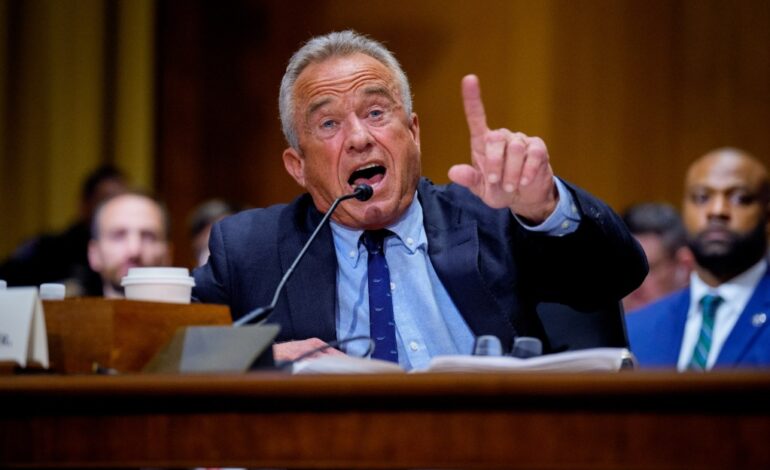West Coast Governors Form Health Alliance Amid Vaccine Controversy

Governors from California, Oregon, and Washington announced the formation of a new health alliance on March 14, 2024, aimed at establishing science-based health recommendations for their states. This initiative comes at a time when the U.S. health policy landscape is experiencing significant upheaval, particularly regarding vaccine guidance, which has sparked widespread concern. The recent developments are further underscored by the actions of Health and Human Services Secretary Robert F. Kennedy Jr., who has been embroiled in controversy over his stance on vaccines.
Alliance for Public Health
The newly formed alliance seeks to promote public health measures that prioritize scientific evidence amidst what many see as a chaotic federal response to health issues. Gavin Newsom of California, Tina Kotek of Oregon, and Bob Ferguson of Washington are at the forefront of this coalition. On the same day of the alliance’s announcement, Kennedy faced intense scrutiny during a hearing where he downplayed the significance of vaccines, leading to alarm among lawmakers.
During a three-hour confirmation hearing, Kennedy, who has long been known for his anti-vaccine views and lack of formal medical training, dismissed concerns raised by senators from both parties. He faced questions about his administration’s approach to vaccines, including the controversial decision to dismiss independent advisers from the Centers for Disease Control and Prevention (CDC) on vaccine safety.
Senator Bill Cassidy of Louisiana, a physician himself, expressed frustration, saying, “Effectively, we’re denying people vaccine.” The recent mandate from Kennedy now requires prescriptions for COVID-19 boosters in some states, a shift from the previous easy access to vaccinations.
Concerns Over Vaccine Accessibility
This change in policy has raised alarms among health professionals and public officials. Senator Maggie Hassan of New Hampshire confronted Kennedy on this issue, stating that he had made it harder for Americans to access vaccines. Kennedy’s response was combative, dismissing her comments as misinformation.
The implications of Kennedy’s leadership are profound. He has cancelled significant funding for mRNA research, which has been crucial in developing vaccines that have saved millions of lives globally. His assertion that mRNA COVID-19 vaccines are the “deadliest” ever produced is met with skepticism, especially in light of research showing that these vaccines reduced hospitalization risks by 91% according to a major study in Scotland.
Moreover, Kennedy’s lack of awareness regarding the death toll from COVID-19, which exceeds 1.2 million in the United States, showcases a troubling disconnect from established data. He has also drawn criticism for his apparent disregard for the achievements of initiatives like Operation Warp Speed, which played a vital role in vaccine distribution during the Trump administration.
The political landscape continues to evolve as health policies are debated. Former President Donald Trump also expressed confusion regarding the effectiveness of vaccines, which further complicates public understanding and trust in health measures. In a recent post, he demanded clarity on vaccine data, echoing sentiment that has become commonplace among some political figures.
As the West Coast alliance begins its work, the tension between state-level health initiatives and federal policy continues to unfold. The governors involved are committed to ensuring that evidence-based practices guide their health policies, particularly as the nation navigates ongoing public health challenges. The contrast between their approach and the current federal stance under Kennedy highlights a pivotal moment in U.S. health policy.
In conclusion, the formation of this alliance signals a proactive step by West Coast leaders to safeguard public health in an increasingly polarized environment. With ongoing debates over vaccine accessibility and safety, the alliance may serve as a model for collaborative public health efforts in the face of federal uncertainty.






